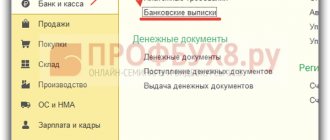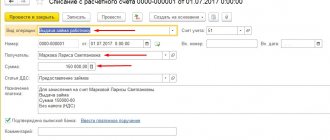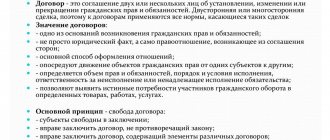Yes but not all. Moreover, only interest received from deposits of individuals that exceed 1 million rubles will be taxed.
The project was proposed by the president in March to help the victims. It states that if the amount of interest on deposits over a million rubles is greater than the amount of interest at the key rate of the Central Bank, then a tax of 13% will be charged. That is, if the law were introduced now, when the key rate of the Central Bank is 4.25%, then personal income tax would be charged on the amount of profit over 40 thousand rubles.
Note: A similar tax is deducted on investments in debt securities. However, it will not be the deposit amount that will be taxed, but only the interest received from it.
Regarding savings accounts
Many citizens do not have deposits in banks, but savings accounts - current accounts that charge interest on the balance. To formalize them, they use an agreement on opening a bank account, not a deposit. But most likely, when determining the total amount, ALL balances on the client’s deposits and accounts, on which interest will be accrued, will be assessed.
Inaccuracies in the project
The situation is not yet completely clear and innovations have not been thought through. D. Peskov claims that the tax is withdrawn only if the entire amount (1 million) is kept in one account. And if it is disbanded for various deposits, then there is no need to pay tax.
However, the head of Sberbank, G. Gref, claims that the total amount of deposits of an individual in all banks is subject to taxation - they will be summed up, and if in total they exceed 1 million rubles, then they are subject to taxation. However, a mechanism that will allow tracking the accounts of a specific depositor in several financial institutions has not yet been developed (bank secrecy does not allow financial institutions to provide information about clients’ personal data).
Undoubtedly, the taxation mechanism will still be worked out, and the situation will later be clarified or clarified.
The changes have already been adopted by the State Duma, but it is not yet entirely clear how all this will work in practice. Perhaps, in the process of implementing the measures proposed by the president, a number of circumstances will be taken into account. Most likely, the deposits will be summed up, and income from balances in all accounts will be added to the tax base - savings accounts that are not formally deposits will also be taxed. Comment Expert's answer
Accounting for interest on the loan amount in VAT
The Ministry of Finance of Russia, in letter No. 03-07-14/216 dated January 10, 2020, explains how to take into account interest accrued on a loan provided, as well as interest for the use of someone else’s funds when determining the proportion for separate accounting of VAT amounts.
Separate accounting
The purpose of separate accounting is to correctly write off the input VAT presented by suppliers of goods (works, services). Therefore you need:
- the amount of tax on purchased goods (works, services) that are intended to carry out transactions subject to VAT shall be deducted;
- the amount of tax on purchased goods (works, services) that are intended to carry out transactions not subject to VAT is written off as an increase in their value.
As officials indicated, in this case it is necessary to calculate the proportion in which the purchased services are used in activities subject to VAT.
The proportion is determined in the manner prescribed when maintaining separate VAT accounting (clause 4.1 of Article 170 of the Tax Code of the Russian Federation). Based on this proportion, the part of the VAT relating to transactions subject to VAT is accepted for deduction, and the part corresponding to transactions not subject to this tax is included in the cost of the service (clause 4 of Article 170 of the Tax Code of the Russian Federation). Moreover, the organization must provide for the procedure for maintaining separate VAT accounting in its accounting policies.
Interest on loans provided
When issuing loans in the form of cash or securities, the organization charges interest for the use of funds. The amounts of accrued interest are exempt from VAT (clause 15, clause 3, article 149 of the Tax Code of the Russian Federation).
Thus, if in the same tax period interest is accrued on such loans and transactions subject to VAT are carried out, input VAT on them is accounted for separately. In the part related to activities subject to VAT, it is taken as a deduction, and in the part related to non-taxable activity, it is taken into account in the cost of goods (work, services) sold and property rights.
With regard to accounting for interest on a cash loan, the Supreme Court of the Russian Federation, guided by the position of the Plenum of the Supreme Arbitration Court of the Russian Federation dated May 30, 2014 No. 33, indicated the following. If an organization issues interest-bearing loans to third parties, then the VAT tax base does not include both the loan amount itself and the interest amounts. Moreover, the loan amount is not subject to VAT, but the amount of interest for VAT purposes qualifies as revenue from the provision of financial services for the provision of a loan in cash. Therefore, when calculating the proportion for separate accounting of “input” VAT, the revenue from transactions not subject to this tax also includes the amount of interest accrued on the loan amount (determination of the Supreme Court of the Russian Federation dated June 26, 2015 No. 308-KG15-6478).
Example. How to account for income in the form of interest on a loan
In the third quarter of 2021, Romashka LLC accrued interest on the loan it issued earlier in the amount of RUB 90,000. In addition, the company shipped goods worth RUB 480,000 to customers. (including VAT RUB 80,000). In the same period, the company paid for the rent of office space, which is used in both taxable and non-taxable activities, in the amount of 180,000 rubles. (including VAT = 30,000 rubles).
Total revenue amounted to:
90,000 rub. + (480,000 rub. – 80,000 rub.) = 490,000 rub.
The share of the transaction not subject to VAT in the total revenue is equal to:
90,000 rub. : 490,000 rub. x 100% = 18.37%
The amount of input VAT taken into account as part of office rental expenses will be:
30,000 rub. x 18.37% = 5511 rub.
VAT can be deducted in the amount of:
30,000 rub. – 5511 rub. = 24,489 rub.
The amount of expenses related to the VAT-free interest accrual transaction will be:
(RUB 180,000 – RUB 30,000) x 18.37% + RUB 5,511 = 33,066 rub.
The amount of expenses related to activities subject to VAT will be:
150,000 rub. – (180,000 rub. – 30,000 rub.) x 18.37% = 122,445 rub.
Please note: there is one exception to the general procedure. If in any quarter the share of total costs for the production of goods (works, services) not subject to VAT does not exceed 5% of the total production costs, the entire amount of input VAT can be deducted (clause 4 of Article 170 of the Tax Code of the Russian Federation ).
Interest on using someone else's money
In accordance with Art. 395 of the Civil Code of the Russian Federation, payment of interest for the use of someone else’s funds is made as a result of unlawful withholding, evasion of their return, other delay in their payment, or unjust receipt or savings at the expense of another person. That is, the payment of such interest is a measure of liability for violation of an obligation, and not payment for goods (work, services) sold.
Officials note that such amounts of interest collected, including by court decision, in the proportion determined on the basis of the cost of goods shipped (work performed, services rendered), transferred property rights for the tax period, are not taken into account.
VAT on legal interest: opinion of the Ministry of Finance
Financial department officials believe that if legal interest received is accrued on amounts related to the sale of goods, works or services subject to VAT, then they should be included in the base for this tax. In other words, VAT should be calculated and paid on the interest received. A similar conclusion is contained in the letter of the Ministry of Finance dated August 3, 2021 No. 03-03-06/1/45600. In this case, subparagraph 2 of paragraph 1 of Article 162 of the Tax Code is given as justification.
The opinion of the Ministry of Finance is quite controversial. Article 162 of the Tax Code of the Russian Federation determines that VAT is levied on income directly related to sales. But Article 317.1 of the Civil Code of the Russian Federation states that interest is accrued for the use of funds, and not for the sale of goods, work or services. The same is stated in paragraph 53 of the Supreme Court ruling indicated at the beginning of the article. Such income is not directly related to sales and therefore should not increase the VAT base.
However, there is no doubt that, armed with the letter from the Ministry of Finance, tax officials will demand VAT on the amounts of legal interest received.
Interest on the balance on the LLC current account
For business companies, receiving interest on the current account balance is an excellent opportunity to make the most profitable use of working capital. After all, putting part of the working capital on deposit is not the best solution, associated with problems and considerable risks. But getting additional profit from unused funds without “freezing” them on a deposit is quite a profitable way.
True, the most profitable offers involve the need to have a certain constant balance - an amount that should remain in the current account at the end of the trading day. However, even such a cash settlement agreement is much more convenient than a deposit agreement - after all, if necessary, it can be quickly terminated, taking away all the funds accumulated in the account, and without incurring any financial losses due to penalties.
Is receiving a loan subject to VAT?
If you received a loan in cash or securities, then you do not have any VAT obligations (clause 1, clause 3, article 39, clause 1, clause 1, clause 2, article 146 of the Tax Code of the Russian Federation).
When receiving other property under a loan agreement, there is also no need to charge VAT, since you do not have a taxable object (clause 1 of Article 146 of the Tax Code of the Russian Federation). However, when returning it, you must calculate VAT, since its return transfer is recognized as a sale (clause 1, article 39, subclause 1, clause 1, article 146 of the Tax Code of the Russian Federation).
Tariffs for accrual of interest on current accounts
For obvious reasons, interest rates on such accounts are much lower than when funds are credited to a regular deposit account. After all, the bank cannot count on long-term handling of these amounts, and, accordingly, will receive less profit from them. The proposals of five large domestic banks are presented here:
| Name | Annual rate | Posting period | Additional terms |
| Sberbank | 0,1% — 1,5% | from 1 day | Salary cards are also used |
| BinBank | 0,5% — 1,5% | from 30 days to 1 year | Monthly payment |
| Rosselkhozbank | 1% — 3% | From 15 days | Selecting the amount of the non-withdrawal balance by the client |
| SobinBank | 1 % — 2,25% | From 1 to 30 days | Independent choice of minimum balance period |
| Alfa Bank | 1% — 1,5% | From 1 to 365 days | Not paid upon early withdrawal |
What is the current VAT rate?
In practice, there are several rates, deductions for which are made depending on the type of product.
Different rates were created in order to provide the population with more necessary goods with less tax, and to sell goods that are not classified as socially significant at a higher tax rate. Let's take a closer look at how much VAT exists in Russia at the moment and what the difference is between them.
VAT 0%
Enterprises in the strategic raw materials and energy sectors, specializing in logistics operations for the import of various products and raw materials, are exempt from paying value added tax. In particular, this rate applies to the following goods and services:
- Export goods distributed under the free customs zone procedure;
- International delivery by all modes of transport with the final point of receipt located outside the Russian Federation;
- Services provided in the field of pipeline transport of oil and gas;
- Providing transport and containers for logistics operations carried out by companies registered outside the Russian Federation;
- Space sector of activity, sales of products and services for its maintenance;
- Various types of services and products for servicing foreign diplomatic missions
- Transfer for use of shipping vehicles built and registered in the Russian Federation.
This is only an incomplete list of services and products not subject to value added tax. Basically, it concerns export issues and is necessary to provide more favorable conditions for domestic organizations. Benefits are also created for strategically important areas of activity.
In order to be able to use 0 percent VAT, an organization must provide the appropriate package of documents to the tax service. In matters relating to import and export, appropriate permits and confirmations from the customs authority are also required. The zero rate is included in the declaration, which is submitted along with other company reports within the established deadlines.
VAT 10%
Added value of 10 percent applies to various groups of socially significant products consumed by the population. In particular, the rate covers the following groups of goods:
- Food group – meat and meat products, milk, eggs, vegetable oils and margarine, sugar, salt, cereals, grains, vegetables, diabetic foods, etc.;
- Products intended for children - baby food, knitwear and clothing, toys, cribs, strollers, school supplies, hygiene products;
- Book publishing – periodicals, books, magazines and newspapers other than those containing materials of an advertising or erotic nature;
- Medical products – medicines and raw materials for their production, medical products for home use or use in clinics. This category includes products from Russian and foreign manufacturers.
The rate increase planned for 2021 did not affect products presented in this category. VAT 10% will remain in the future to ensure the social needs and needs of various segments of the population.
VAT 20%
20 percent is charged for all other goods not included in the lists above. The maximum rate applies to manufacturers and companies offering services in Russia that do not carry out export or import operations. This is due to the fact that the indirect tax is domestic and is in fact levied on domestic sales.
How interest is calculated
Most banks, with the exception of Sberbank, calculate interest according to the same principles. They are described in additional agreements to the RKO agreements.
The bank determines the average amount of funds actually on the account for the billing period. Then annual interest is calculated on this amount based on the number of days in the current year. The received amount is arithmetically rounded to two zeros after the decimal point, and is paid by transfer to the client’s current account.
Most banks transfer this amount on the last day of the reporting period, usually on the last banking day of the month. The only exception is Sberbank.
Sberbank clients receive notification of the accrual of funds on the last day of the month. And their actual receipt into the current account occurs within the next three days. Thus, when preparing reports, Sberbank client enterprises are forced to enter the amount of funds accrued on the balance in the debit account.
In general, accruing funds to a balance will not bring significant profits, except in cases of operating with truly large sums of money.
However, the absence of risks of losing funds and the promptness of withdrawing the balance if necessary allows us to consider this service as a fairly reasonable way to generate additional profit. Despite the mandatory inclusion of funds received in taxable profit, an enterprise can receive considerable benefits when choosing the most optimal offer from domestic banks.
What changed
From August 1, 2021, Article 317.1 of the Civil Code of the Russian Federation has undergone a change - its new version states that legal interest can be accrued if this is included in the terms of the agreement. Thus, if previously the norms of Article 317.1 of the Civil Code of the Russian Federation were applied by default, now the opposite is true - in order to apply them, this must be stipulated in the contract.
As for agreements concluded before the entry into force of these amendments, the following options are possible:
- if the conditions for the application of Article 317.1 of the Civil Code of the Russian Federation are not specified in the contract, then from August 1, 2021, the seller stops accruing non-operating income, and the buyer stops accruing expenses;
- if the contract states that interest is charged in case of late payment in accordance with Article 317.1 of the Civil Code of the Russian Federation, from August 1, 2016, everything remains the same for the parties.
In any case, the seller’s accountant, who is not going to collect legal interest from his buyers, now has one less headache - now there is no need to scrutinize the terms of the contract to see if it contains the rule on the non-application of Article 317.1 of the Civil Code.
But a new problem has arisen for the accountant of the company, which still plans to collect from its customers the legal interest accrued in accordance with this article. And it lies in the need to resolve the issue - to charge or not to charge VAT on the interest amounts received?
Reflection of deposit interest in the VAT return
Formation of a VAT return is necessary for all taxpayers who are payers of this tax in accordance with current legislation.
The VAT declaration is very voluminous and consists of 26 sheets and is filled out in sections.
Let's look at what to fill out in each section in table form:
| Section name | What is reflected in the section |
| Section No. 1 | The amount of taxes that must be paid to the budget is reflected. |
| Section No. 2 | The amount of taxes and fees is reflected by the taxpayer who acts as a tax agent |
| Section No. 3 | sales amounts subject to taxation; |
| Section No. 4 | To be filled in if VAT rate zeros are used, and in this section it is necessary to justify the use of this rate |
| Section No. 5 | How are tax deduction amounts calculated when selling goods and services? |
| Section No. 6 | If a zero VAT rate is used, then this section does not confirm it |
| Section No. 7 | List of transactions that are not subject to VAT at a specific enterprise |
| Section No. 8 | Information from the purchase book is reflected, specifically for those transactions that relate to this declaration |
| Section No. 9 | Information from the sales book is reflected, specifically for those transactions that relate to this declaration |
| Section No. 10 | List of information from the special invoice journal |
| Section No. 11 | Information from the invoice journal is reflected in relation to certain actions that are carried out in relation to other persons |
| Section No. 12 | availability of invoices with allocated VAT presented to counterparties |
Accrued interest on the deposit is reflected in section No. 7 of the VAT Return.
All data is filled in from left to right. If empty columns remain during filling, a dash should be placed in them. To confirm the correctness of filling out the section, the head of the enterprise puts his signature and date in the indicated place.
At the bottom of the sheet you must indicate the TIN and KPP of the enterprise. An important point is the formation of a special reporting document within the organization itself.








